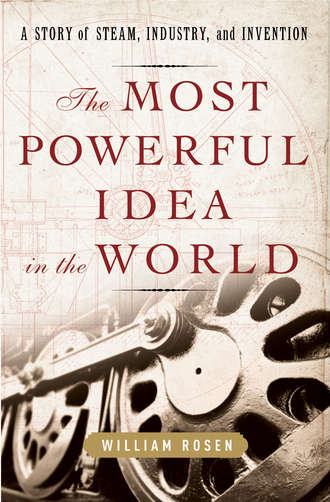The title of this book, The Most Powerful Idea in the World, is a bit of hyperbole. But it captures the right idea about how important the steam engine was to the industrial revolution. Yes, I said a steam engine. Sounds boring? Well, part of this book can be a bit dull. For the most part, however, the book is an interesting description of a few core themes.
First, it does a great job of describing the power of innovation. And how innovation happens. I really enjoyed Rosen’s treatment of the “aha!” moment when combined with a long history of achievements prior to that moment. Said another way, no inventor can take all the credit for his/her invention; it’s almost always an individual stroke of genius that is built upon the hard work of many others. This is especially true for something as groundbreaking as a steam engine when mechanization of…well, mechanization of anything was a rarity.
Second, the book does a great job of describing how culture plays a part in the development of new ideas. The book explores the reasons why so many discoveries came from Britain and the United States. I like how Rosen describes the groundbreaking work of any number of other countries (France, Italy and China in particular), but then reflects on the fact that they were unable to take those discoveries and leverage them. By leveraging them, I mean achieving such goals as further inventions, creating jobs, creating products, creating wealth, easing the human condition, etc etc. Discovering the idea isn’t good enough; you must also implement the idea. And England and the United States, during the early and middle stages of the industrial revolution, were particularly adept at doing this. I’ll let you read the book to find out why Rosen thinks this is so.
Lastly, the book is an unapologetic defense of the industrial revolution and particularly of the Anglo culture. He points out that where the English colonized in the past (including the United States) you tend to have the rule of law, property rights, and a spirit of innovation. It’s a broad generalization that is sure to set off arguments, but Rosen is quite forthright about it. I find that refreshing because so many authors tend to dance around issues that might label them as cultural elites or possibly even racist. Rosen is neither, but his comments are sure to generate those accusations.
This is a loooong book, so I don’t recommend it for everyone. And as I said, it can be dull at times (unless you really care about the exact shape/size of a smokestack on a steam engine). But if you enjoy engineering, economics, and history…you’ll enjoy this book.

